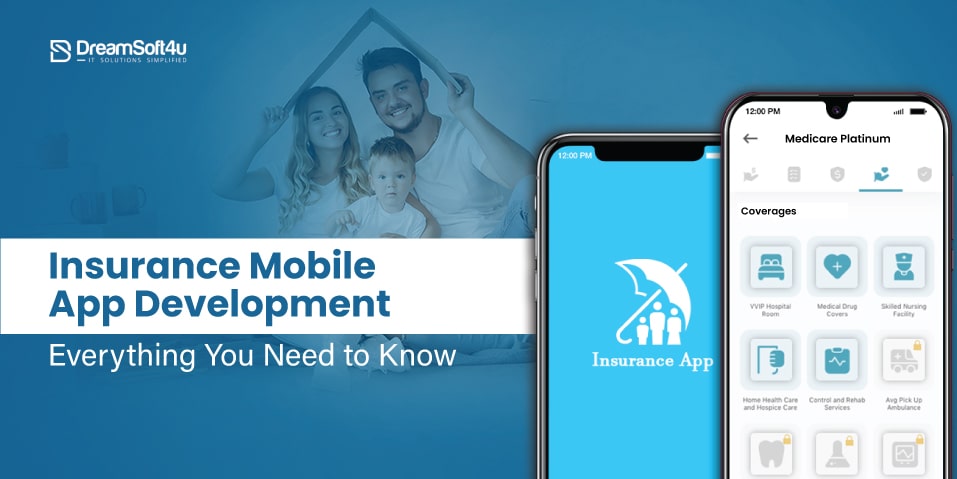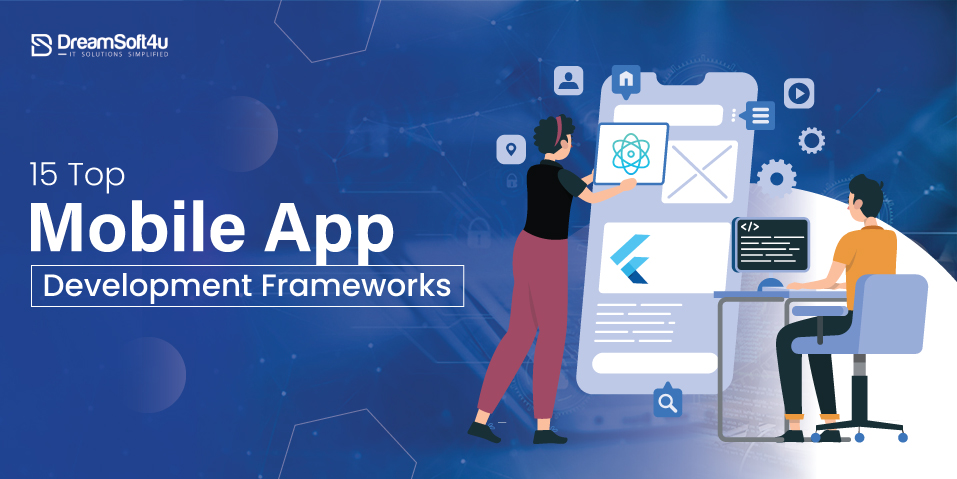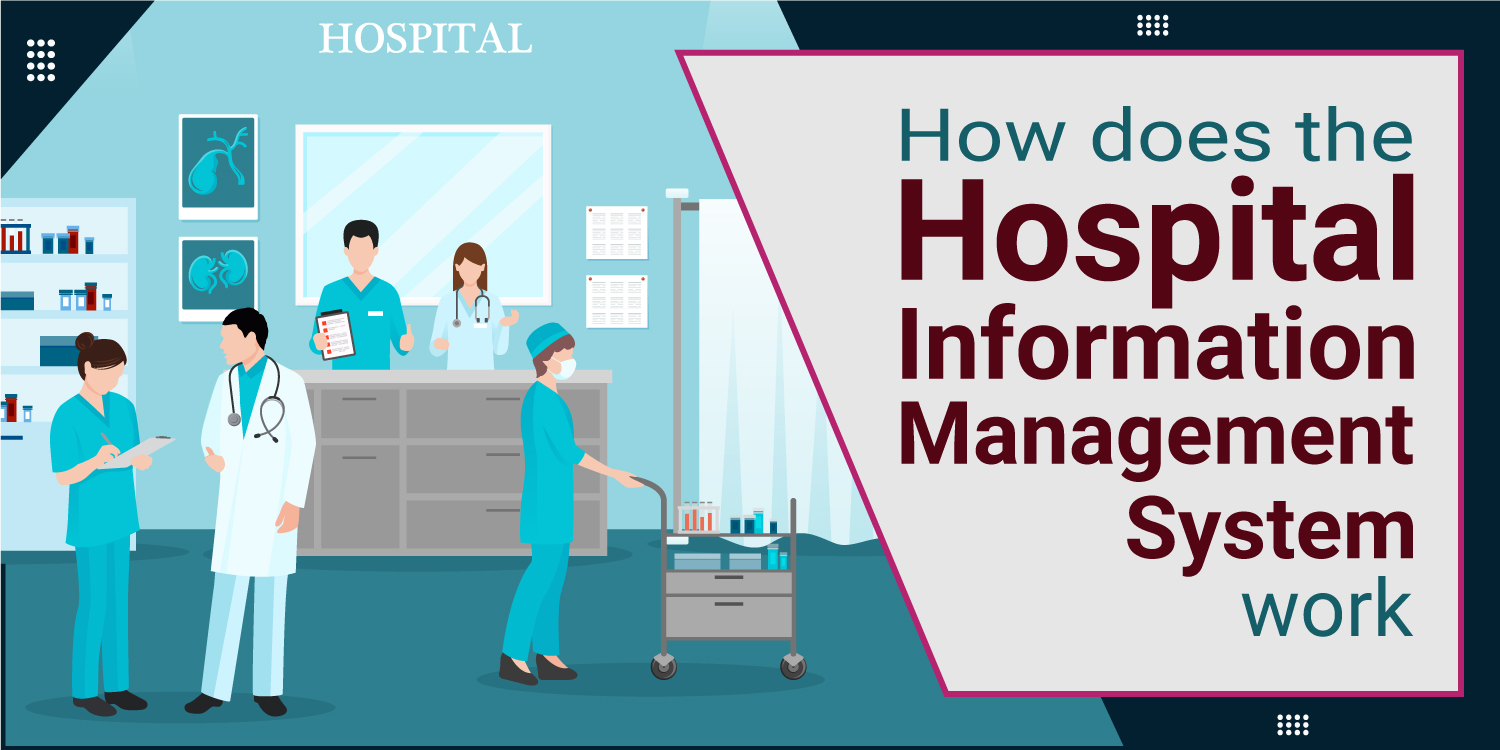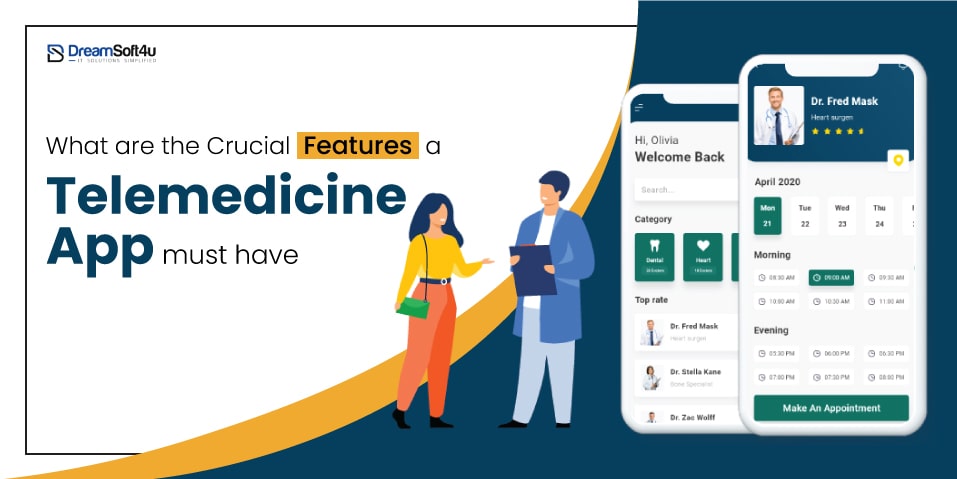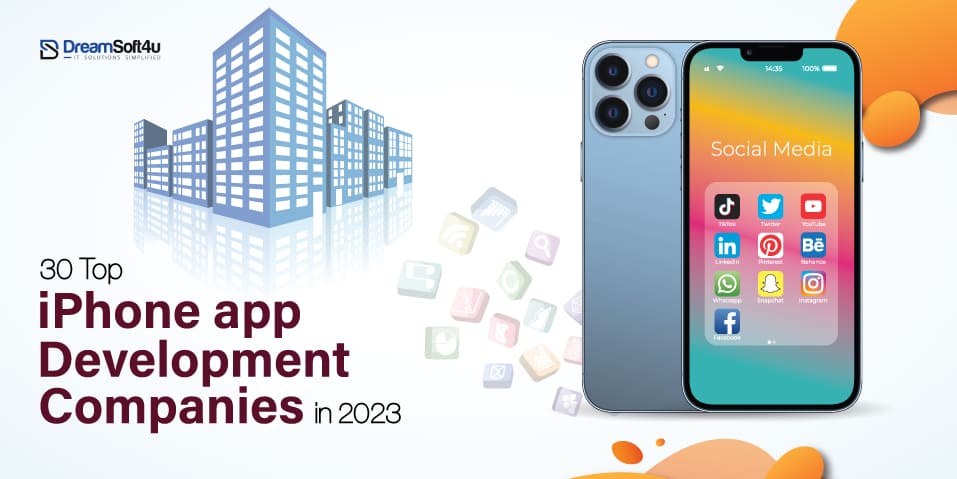In 2025, AI is moving rapidly, and now it is no longer just a concept in the real world — it is here and changing how businesses run. As a business owner, you are probably always looking for ways to make operations smoother, increase efficiency, and grow sales. That is where AI agent platforms come in as an all-in-one solution. It allows businesses to operate 24/7 at peak, engage customers, drive sales, and scale faster with complete automation.
From automating tasks, answering customer queries, and analyzing data to driving sales, AI agents help businesses grow smoothly with minimal effort.
Despite its numerous benefits, many businesses are unaware of AI agents and how to use them to gain a competitive edge. It means you are missing out on a big opportunity to stand out your brain. But not anymore!
Whether you are a startup or scaling enterprise, if you want AI agents to have maximum benefits in your business, then keep reading.
To help you make a future-ready decision, In this guide, we’ll understand everything about AI agents, their types, and benefits and explore the 15 top AI agent platforms that help businesses revolutionize their business and stand out from others. Each platform is finalized based on its advanced capabilities, ease of use, and popularity.
By the end of this blog, you’ll know exactly the role of AI agents and easily pick the best-fit AI agent platform for your business.
Table of Contents
ToggleWhat is an AI Agent Platform?
An AI agent platform is a tool that helps you create and manage AI agents that can work on their own in your business. Think of an AI agent as a smart software assistant.
These agents can learn from data, make decisions, and independently engage with individuals or other systems.
You can automate various tasks with AI agents: customer support, analytics, and decision-making.
Businesses use machine learning, natural language processing, and reinforcement learning to create AI agents.
The main role of creating AI agents is to eliminate the repetitive tasks organizations perform day-to-day: customer support, data analytics, report generation, and scheduling, allowing your teams to spend their time more productively on growing/ scaling your business.
Simply put, an AI agent platform allows you to develop and manage digital employees who can perform time-consuming work and no longer require constant human monitoring.
Types of AI Agents
Here are four common types of AI Agents:
1. Conversational AI Agents
The conversational AI agents help your business communicate with customers through chat or voice without needing your staff to respond manually each time. Let us understand how it connects with customers in a more personal and efficient way:
- Chatbots: These are digital assistants found on websites or apps. They provide 24/7 support, answer questions, and adapt themselves over time by utilizing the information available from customer interactions.
- Voice Assistants: Voice-enabled assistants, like Siri or Alexa, allow customers to engage through sole voice commands, effectively ease task completion, and provide hands-free support.
- AI-Powered IVR: These systems answer customer calls automatically and direct them to the right department, reducing wait times and increasing customer service.
2. Task Automation AI Agents
These AI agents manage repetitive tasks, so your team doesn’t waste time on them. They do it behind the scenes, streamlining your business processes and keeping your staff available for more important work. This is how:
- RPA with AI: These AI Agents do basic work, such as data entry or file sorting. With AI, they can also make smart decisions, enhancing accuracy and speed.
- Workflow Automation Agents: They schedule work, monitor progress, and get everyone on the same page so work happens efficiently and promptly.
- Email Automation Agents: AI agents handle emails on your behalf by responding to, filtering messages, providing answers to regular questions, and saving time by keeping communication continuous.
3. Recommendations and Personalization AI Agents
These agents help tailor your services to each customer, making their experience more personalized. By understanding what they like or need, they recommend products or content that fit them perfectly. Here is what they do:
- Product Recommendations: These agents suggest products the customer has looked at or purchased. For example, customers might get suggestions for matching socks or accessories if they buy shoes.
- Content Recommendations: If your site has articles, videos, or other content, these agents recommend similar items based on what the customer has already viewed. This helps keep them engaged and exploring more.
- Personalized Search: When customers search on your website, these agents show results based on their past preferences. For example, if they often search for outdoor gear, the system will show more of that product first, making it easier to find what they need.
4. Proactive Assistance AI Agents
These agents don’t wait for instructions—they predict what your business or customers need and act on it. They provide valuable support even before you ask. Here is how:
- Intelligent Assistants with Proactive Features: These AI assistants remind you of important tasks, suggest actions, and offer help before you even realize you need it. It is like having a personal assistant that always stays ahead.
- Predictive Maintenance Agents: If your business uses machines or equipment, these AI agents predict when something might break down. They monitor equipment, detect early problems, and alert you so you can fix them before they fail.
- Anomaly Detection Agents: These AI agents watch over your business data and alert you if something unusual happens. For example, if you suddenly get a lot of orders or an error in your system, they will let you know so you can handle it fast.
Where Are AI Agents Making an Impact?
Did you know? As per recent stats, the AI agents market is expected to reach $216.8 billion by 2035 with a CAGR of 40.15%. It clearly shows that AI agents are already transforming key industries like customer support, sales, marketing, and remote work. Here is how they are making a difference:
Excellent Customer Support
AI agents are available 24/7, providing instant assistance for customers. They can provide answers, solve problems, and even guide customers through processes without human involvement. This results in faster support, satisfied customers, and less workload on human agents.
Drive Sales
AI agents help sales teams focus on the right customers. They analyze customer data, identify leads most likely to convert and personalize outreach. This means sales teams don’t waste time chasing unqualified leads and can focus on closing more deals faster.
Optimize Marketing Campaigns
AI agents make marketing easier by analyzing customer data and creating content that appeals to them. They can also automate tasks like posting on social media or testing ad strategies. This saves time and helps businesses run more effective marketing campaigns.
Streamline Operations
AI agents can save businesses valuable time by completing repetitive tasks. AI can schedule meetings, file emails, or track expenses. This allows employees to spend more time on their important work.
15 Top AI Agent Platforms To Revolutionize Your Business

Here are the 15 most popular AI agent platforms to revolutionize your business:
1. Voiceflow
Voiceflow is a no-code platform specifically suited to assist firms in creating and maintaining human-sounding voice-based AI agents using a programming background. Voiceflow’s drag-and-drop feature supports a fast and easy process. It is ideal for firms with AI agents in customer services, voice commerce, and optimizing customer engagement.
Key Features:
- No-Code Design
- Drag-and-Drop Builder
- Natural-human-tone AI Assistance
- Multi-Platform Deployment
- Extensibility
- Real-time Collaboration
- Customizable Conversations
2. Stack AI
Stack AI is a one-stop solution when business automation and scalability matter. It empowers companies to develop AI-powered workflows and autonomous AI agents and enhances multiple business areas by automating recurring tasks, managing customer inquiries, and performing informed decision-making. It is an ideal opportunity for small and large startups to automate a business, reducing human error.
Key Features:
- AI-Powered Scalable Automation
- Data-Driven Insights:
- Customizable AI Models
- Seamless Integration with Existing Systems
- Automated Testing
- NLP Models
3. Postman AI Agent Builder
Postman AI Agent Builder is a best-fit tool for businesses relying mainly on APIs for their operations and looking to automate this process. It allows companies to easily build, test, and launch AI agents that help automate API-based processes. With this platform, companies can use AI to create AI agents that interact with APIs, making integration and automation faster and more seamless.
Key Features:
- Effortless LLM testing and evaluation
- Instant Tool Readiness:
- No-code, modular development
- Simplified agent testing
- Accuracy with Verified APIs
- Visual Workflow Builder
- Multiple AI Model Support
- Flexible for API-based businesses
4. OpenAI s Operator
OpenAI Operator enables AI models to communicate with any app or website, even without API, by simulating human behaviors such as typing, scrolling, and clicking. Companies can create, manage, and run AI agents to carry out customer support, content writing, code writing, and marketing tasks. It best suits companies wanting to automate complex, human-like interactions with minimal human intervention. In addition to that, it provides other advantages of using OpenAI LLMs, such as GPT-4, for developing smart virtual assistants and AI agents.
Key Features:
- GPT-powered automation
- Web Interaction Without APIs
- Access to Powerful LLMs
- Customize AI Models
- Advanced Integration Capabilities
- Self-Learning Capabilities
- Data-driven Decision Making
- Automate Web-based Workflows
5. Google’s Vertex AI Agent Builder
Vertex AI Agent Builder is a Google-backed platform where businesses can create and manage secure, production-ready AI agents for processes such as conversation or custom workflows. It can handle generative AI models and integrates seamlessly with tools like BigQuery, Firebase, and Dialog Flow. The platform enables you to construct using no-code or low-code configurations, ranging from simple chatbots to sophisticated AI-based models. It is ideal for companies requiring high-performing and scalable AI solutions.
Key Features:
- No-Code AI Development Services
- Seamless LLM Integration
- Grounding AI Outputs in Data
- Multi-tasking and Multi-Agent Workflows
- Collaboration and Deployment Tools
- Deep Integration with Google Cloud Services
- Multi-Channel Support
6. Microsoft 365 Copilot
Microsoft 365 Copilot with Agent Store is an enterprise-ready tool tailored to help organizations leverage custom AI agents across Microsoft 365 apps such as Word, Excel, Outlook, and Teams. Copilot and Agent Store engage users with user-friendly prompts that guide them through working, collaborating, and task-completion processes. Within the Agent Store, you can browse, install, and control custom AI agents focused on not only recommending but also automating processes and workflows and getting insights. Agents are like mini-apps dedicated to providing users with greater ease of use and efficiency while working. Copilot optimizes manual processes and enhances organizational productivity, which thus represents an attractive add-on for organizations seeking to consolidate their work processes.
Key Features:
- AI-Driven Productivity
- Seamlessly integrates with Microsoft 365
- Centralized Hub for installing and Managing AI Agents
- Automate Operations
- Support third-party integration
- Customizable AI Agents
- Collaboration & Workflow Automation
7. AutoGen
AutoGen is an open-source platform developed by Microsoft. It is used for building and running multi-agent models. It enables AI agents to interact and cooperate to address complex issues. AutoGen is ideal for any small to medium-sized business seeking a simple-to-use solution for automating simple business operations such as generating responses, process management, scheduling, data entry, and customer support.
Key Features:
- Multi-Agent Collaboration
- Seamless Integration with LLMs
- Customizable AI Agents
- API Integration
- Debugging Capabilities
- Scalability
- Task Automation Across Channels
- Code Execution and Debugging
8. CrewAI
CrewAI is an open-source platform where businesses can create and run groups of AI agents that collaborate to solve difficult problems. The agents can collaborate on a problem as a crew, where they play different roles to achieve the same goals. It is like creating a “crew of AI agents” that can work together like people to get something done. It utilizes Slack and Microsoft Teams for team collaboration, task management, and tracking progress.
Key Features:
- Multi-Agent Collaboration
- Autonomous Task Delegation
- API Integration
- Role-Based Agent Design
- Flexible Task Management
- Event-Driven Orchestration
- Scalability
- Remote Work Automation
- Real-Time Updates & Notifications
9. Agent Force
Agentforce is an AI platform from Salesforce that helps businesses create intelligent agents to automate tasks like answering questions, managing tickets, solving problems, and even guiding sales teams to improve customer interactions. These AI agents operate independently and leverage AI and data to handle various operations, workflows, and processes.
Key Features:
- Intelligent Task Automation
- Customizable AI Agents
- Pre-built Skills
- Real-time Data Access and Analysis
- Seamless Integration with Salesforce Data
- AI-Powered Ticket Routing
- Omnichannel Support
10. IBM Watson
IBM Watson is one of the most preferred choices for large enterprises that want to utilize AI Agents for different business operations. It is easy to build AI agents with IBM Watson’s drag-and-drop builder to automate workflow. Plus, it offers pre-built automation components in AI Agents without coding. From HR onboarding, auditing, policy compliance, and analysis to customer engagement, these AI agents can automate these end-to-end workflows.
Key Features:
- AI Development Studio
- Pre-built AI Agents
- No-Code Automation
- Seamless Integration with Business Tools
- Enterprise-grade Level Solution
- Support Different Agent Architectures
11. Gumloop
Another best AI agent platform is Gumloop. It is a no-code AI agent platform specializing in automating marketing and web scraping tasks like extracting data, generating qualified leads, and streamlining marketing campaigns. Its visual workflow builder makes the AI agent development process easier and faster. It overall improves conversion rates and drives sales.
Key Features:
- No-Code Platform
- AI-driven Automation Capabilities
- Extensive Integrations
- User-Friendly Interface
- Workflow Templates
- Advanced-Data Analysis
12. HockeyStack
HockeyStack is a well-known AI agent platform for marketing reports and account intelligence. It helps small to midsize businesses identify market opportunities to drive more sales and automate operations. It allows companies to track customer behavior, improve marketing campaigns, and generate insights automatically. HockeyStack makes it easier for companies to optimize their marketing strategies, identify high-converting leads, and automate outreach. It is ideal for companies looking to improve their marketing efforts with data-driven insights and enhanced decision-making.
Key Features:
- Multi-Touch Attribution
- Website Analytics
- Predictive Analytics
- Deep analysis of Marketing Campaigns
- AI-driven Insights
- Advanced Segmentation
- Marketing Data Integrations
13. Zep
Zep acts like an AI agent’s memory, which remembers things over time, improving its ability to offer personalized and accurate experiences. It works like a memory system, allowing agents to recall past conversations and essential details, even if the chat is paused or interrupted. Zep stores this information in a knowledge graph, including conversation history and business data. So that AI agents can handle scalable and complex workflows. It benefits businesses with heavy data to load, use, and manage with AI agents. In simple words, Zep makes pre-built AI agents production-ready to work on complex tasks more efficiently with data-driven actions.
Key Features:
- Temporal Knowledge Graph
- Business Data Integration
- Enhanced Recall
- Scalable AI Agents
- Enhanced Agent Accuracy
- Persistent Storage and Efficient Retrieval
- Lower Inference Costs
14. Botpress
Botpress is another open-source conversational AI platform that allows businesses to build, manage, and optimize AI agents, focusing on security and extensibility. It’s ideal for companies that need a flexible, customizable solution with enterprise-grade security. It’s an all-in-one AI agent platform that offers everything a company needs to build AI agents efficiently.
Key Features:
- Visual Workflow Design
- Real-time collaboration
- Advanced data analytics
- Enterprise-grade security
- Multi-Channel Support
- Powerful AI Capabilities
- Modular Workflows
15. LangChain
LangChain is an open-source framework that makes it easier to build applications using large language models (LLMs). It connects LLMs with different data sources and generative AI tools, helping businesses build custom AI agents with pre-made models like GPT-4, Claude, Llama, etc. These AI agents are more accurate, improved, and customizable than other AI agent platforms.
Key Features:
- LLM Interface
- Chain and Prompt Templates
- Extensive Integrations
- Memory Management
- API Extensibility
- Agent Functionality
- Extensive Documentation
- Modular Architecture
Top 5 Benefits of AI Agent Platform
Here are the top 5 benefits of top AI tools for business:
Increased Efficiency and Productivity
AI agents handle repetitive tasks like answering customer questions, processing data, and managing emails. By letting AI take care of these tasks, your team can focus on more critical and creative work. This means less time spent on routine chores, leading to faster results and a more productive business overall.
Cost Reduction
Hiring and maintaining a large workforce is expensive. But with AI agents, you can save money by cutting down on manual labor and reducing human error. Plus, AI helps streamline your operations, meaning fewer mistakes and less time spent fixing problems. It’s a smart way to cut costs without sacrificing quality.
Enhanced Customer Experience
Your customers do not want to wait, and AI agents understand that. Whether answering questions 24/7 or offering personalized recommendations based on past interactions, AI makes customer service more efficient and friendly. This leads to happier customers who feel like they are getting the attention they need whenever they need it.
Data-driven Decision Making
Running a business involves making a lot of decisions, big and small. The difference between a successful decision and a costly mistake is data. AI agents are data crunchers at heart. They can analyze large amounts of data in seconds and give you insights that would take humans much longer to uncover. Whether trying to figure out which products are trending or what marketing strategies are working, AI helps you make smarter decisions based on real-time data.
Scalability and Flexibility
As your business grows, AI agents can grow with you. They can handle an increased workload without hiring more people or investing in complicated systems. Whether dealing with more customers, expanding to new regions, or launching new products, AI is flexible enough to adapt to your needs. So you can focus on scaling without worrying about capacity.
How to Choose the Right AI Agent Platform for Your Business?
Here are some key factors to choose the right AI agent platform:
- Ease of Use: Choose a platform that is easy to use, especially if you are not a tech expert. Look for one that lets you build and manage AI agents with little or no coding. The easier it is, the quicker you can start using it.
- Customization Capabilities: Make sure the platform allows you to customize the AI agent to fit your business. You should be able to change how it behaves, answer questions, and do tasks to match your needs.
- Integration with Existing Systems: The platform should work well with the tools you already use (like your CRM, email system, or other software). This will help everything run smoothly together.
- Scalability and Performance: As your business grows, the platform should be able to handle more work without slowing down. Choose a platform that can keep up with your business as it expands and help your AI development company handle more efficiently.
- Decision-Making Capability: The AI agent should be smart enough to make data-based decisions. Look for a platform to help the AI make choices or predictions that improve your business operations.
- Budget: Think about how much you are willing to spend. Some AI SaaS platforms are cheaper, while others might cost more. Find one that fits your budget but still does everything you need.
The Future of AI Agents in Business
AI agents are set to transform business operations by automating tasks, enhancing decision-making, and promoting collaboration between humans and machines. Experts predict that by 2028, 33% of enterprise software will include AI agents, with 15% of daily work decisions made autonomously. This shift will improve efficiency, reduce costs, and create new business models. Key trends include growing adoption across industries, multi-agent systems working together on complex tasks, and AI orchestrators managing these systems. As AI agents assume more roles, businesses must adapt, with new workplace dynamics and skills emerging. Ethical AI development and a focus on balancing AI with human creativity will be essential for a prosperous future.
Conclusion
AI agent platforms are revolutionizing business operations by automating routine tasks, enhancing decision-making, and improving customer service. Choosing the right AI agent platform is necessary to get the maximum benefits of AI agents. We hope this guide helps you explore the top 15 AI agent platforms, their functionalities, and benefits. Each comes with its purpose and uniqueness to fulfill business needs. Now, it’s your turn to review all these platforms and consider the factors to determine which is best for your business.
Still confused? You can connect with DreamSoft4U, an AI agent development company, to help you make the right choice and get a competitive edge. Contact Us today!
FAQs
Q1. How can AI agents benefit my business?
AI agents help your business run more efficiently by automating repetitive tasks, reducing costs, improving customer service, and helping you make smarter decisions based on data.
Q2. What types of tasks can AI agents automate?
AI agents can automate tasks like answering customer questions, managing emails, processing data, generating reports, personalizing marketing, and scheduling appointments.
Q3. Can AI agents integrate with my current business systems?
Yes, most AI platforms can integrate with your existing tools, such as CRM systems, email platforms, and other software, to ensure smooth workflows.
Q4. Are AI agent platforms suitable for small businesses?
Yes, many AI platforms are designed to be scalable and easy to use, making them perfect for small businesses that want to improve efficiency and reduce manual work.
Q5. Do I need coding skills to use an AI agent platform?
Many AI platforms offer no-code or low-code options, so you do not need coding skills. However, some platforms may offer more customization if you know how to code.












